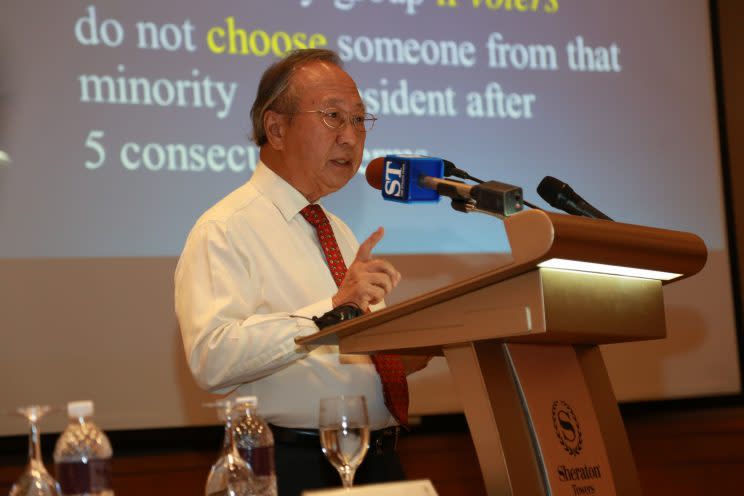Tan Cheng Bock to appeal High Court ruling on reserved presidential election

Tan Cheng Bock will appeal the High Court ruling on his constitutional challenge to the timing of this year’s reserved presidential election.
In a Facebook statement on Wednesday night (12 July), the former presidential candidate said, “After studying the reasons given by the Court and reading the official Court transcripts, my lawyers have advised that the Judge may have misconstrued the relevant Constitutional provisions. I have therefore filed an appeal to the Court of Appeal to review the Court decision. I will leave it to my lawyers to submit the relevant legal arguments.”
Tan said the appeal case is likely to be heard on 25 July and that the Court will sit in open court. The appeal timelines were agreed earlier between the Attorney-General and Tan so that the case will not affect the presidential election, which is scheduled to be held in September.
“I am heartened that many Singaporeans are taking a healthy interest in the law-making process and the Constitution as a result of this case. These are important things for us and our children to know. We must never take these institutions for granted,” Tan added.
Last Friday, Tan’s legal challenge was dismissed by the High Court. On the same day, he slammed Deputy Attorney-General Hri Kumar’s comments on the case as ‘highly inflammatory’.
In May, Tan filed an affidavit to the High Court to challenge the counting of five terms of the Elected Presidency (EP) to trigger this year’s reserved election. The upcoming presidential election is reserved for Malay candidates.
The 76-year-old former Ayer Rajah MP, who held a media conference in March about the issue, questioned the advice given by the Attorney-General’s Chambers to the government that the first term of the EP began with President Wee Kim Wee. “The AGC should have counted the five most recent presidential terms produced by open elections. This starts with President Ong Teng Cheong,” he said.
Tan argued the reserved election’s definition of “five most recent terms” refers to Presidents who were elected by citizens to serve for a six-year term. He said Wee did not assume office through an election and his term of office under the constitutional provisions then in force was four years.
Citing the Constitutional Commission’s report to support this argument, Tan said a reserved election would be triggered if “no candidate from a particular racial group has held the office of President for 30 years or more”.
But the High Court dismissed Tan’s position, with Justice Quentin Loh referring to two articles of the Constitution. Specifically, “Article 19B(1) provides for a Reserved Election for a community if no person from that community has held the office of President for any of the five most recent terms of office of the President while “Article 164(1)(a) provides for Parliament to specify the first term of office of the President to be counted under Article 19B(1) (“First Term”).”
The court found that, on a plain reading of Article 164, Parliament is not limited to choosing a particular term of office of the President as the First Term. However, the power under Article 164(1)(a) must be exercised in accordance with Article 19B(1) because the purpose of Article 164 is to enable Parliament to implement Article 19B.
It also found that there is nothing in the text or textual context which limits Parliament’s power by requiring Parliament to start the count from the term of office of a popularly elected President.



